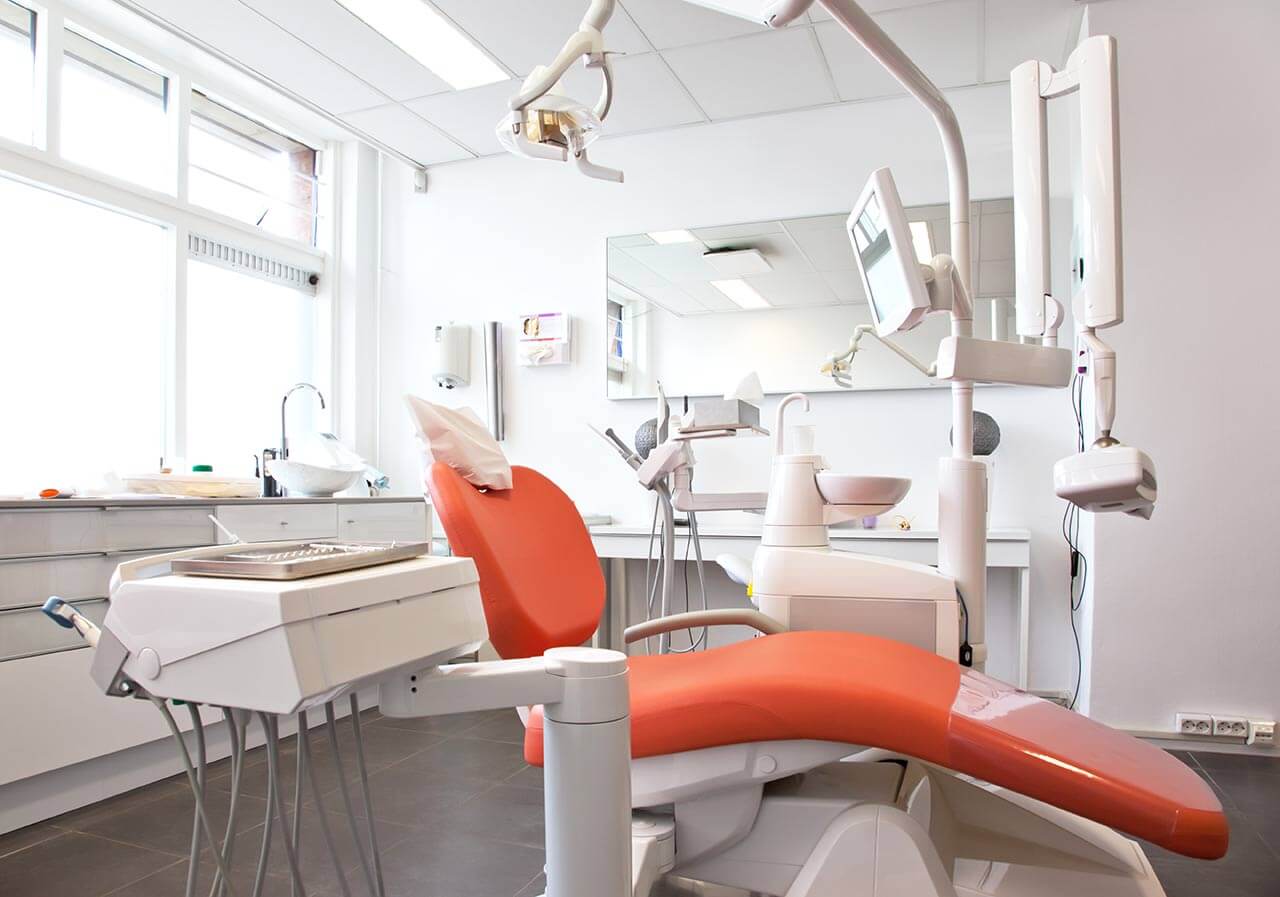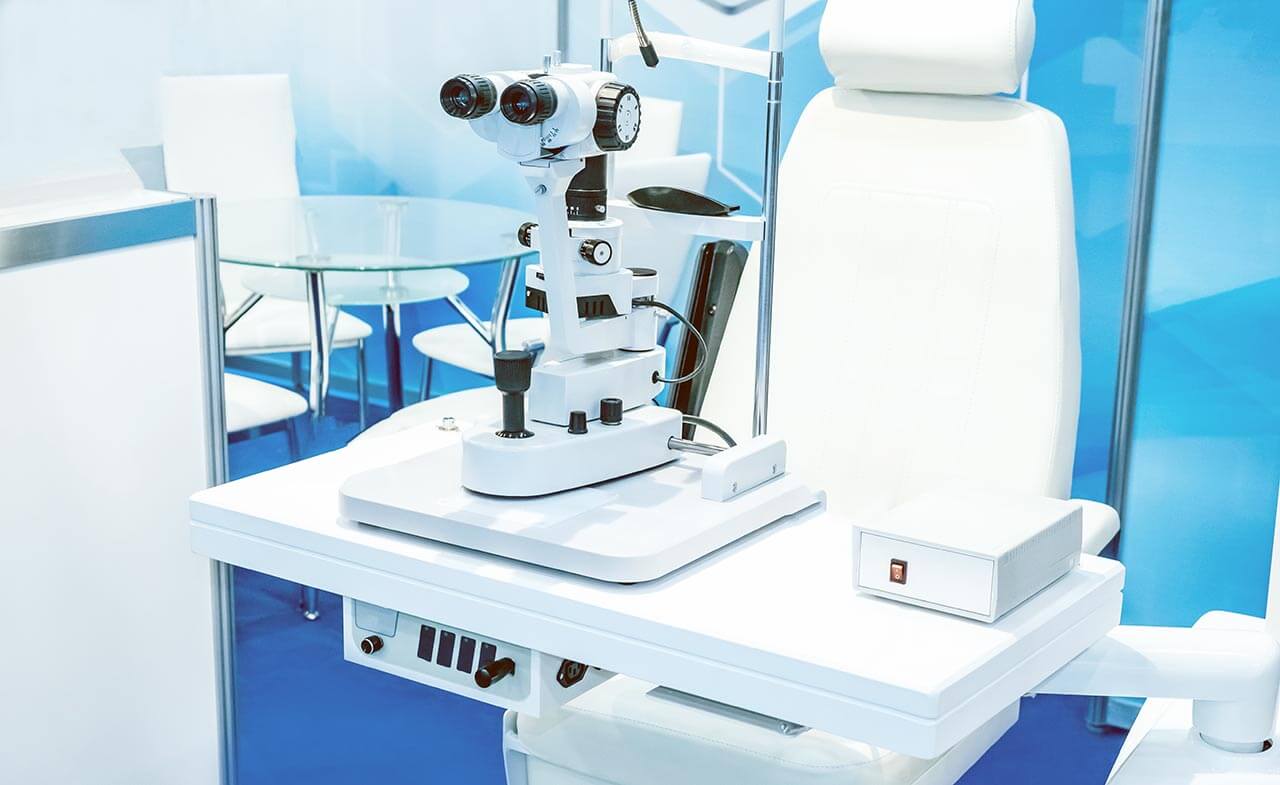
The program includes:
- Initial presentation in the clinic
- clinical history taking
- physical examination
- review of medical records
- laboratory tests:
- complete blood count
- general urine analysis
- biochemical analysis of blood
- inflammation indicators
- indicators blood coagulation
- Immune status
- hormonal analysis
- FSH
- LH
- estrogens
- progesterone
- prolactin
- TSH-basal, fT3, fT4
- ultrasound of the abdomen and pelvis
- transvaginal ultrasound
- gynecological examination
- preoperative care
- laparoscopic surgical dissection of adhesions
- symptomatic treatment
- control examinations
- the cost of essential medicines and materials
- nursing services
- full hospital accommodation
- explanation of future recommendations
Required documents
- Medical records
- Results of hormone blood tests (if available)
- Pelvic ultrasoud (if available)
Service
You may also book:
 BookingHealth Price from:
BookingHealth Price from:
About the department
The Department of Reproductive Medicine at the Liv Hospital Istanbul offers all modern assisted reproductive technologies for fertility treatment in men and women. The department complies with the highest international standards, while its patients receive an individual approach and treatment in accordance with the most relevant clinical protocols. Particular attention should be given to the in vitro fertilization (IVF) procedure, which today is one of the most effective for conceiving a long-awaited pregnancy. If necessary, couples receive professional psychological support. The department is headed by Asst. Prof. Dr. med. Deniz Gokalp.
The specialists esteblish the diagnosis of infertility for a couple if they fail to conceive a child within one year of regular unprotected sex. The key to successful fertility treatment is the exact determination of its causes – infertility factors. In rare cases, the doctors have to ascertain infertility of unknown origin, when all indicators of reproductive health in women and men are normal.
The optimal method for a successful conception of pregnancy is the IVF procedure. The most important factors affecting the success of IVF are the age of the expectant mother and her egg supply. In women over the age of 38, the egg supply is significantly reduced, which can become an obstacle on the way to a long-awaited pregnancy. In some clinical cases, before IVF, a woman may need preliminary treatment, for example, restoration of the fallopian tube patency, endometriosis treatment, normalization of the menstrual cycle and hormonal levels, etc.
In vitro fertilization involves the fertilization of an egg in artificial conditions (in a laboratory), outside the mother's body. In vitro fertilization is necessarily preceded by the hormonal preparation of the patient. In natural conditions, during one menstrual cycle of a woman, only one egg matures, but it is not enough for an effective IVF program. With the help of hormonal drugs, the doctor stimulates the development of several eggs. The maturation of 6-8 eggs is considered optimal for IVF. Then the eggs are extracted under general anesthesia. With the help of a syringe with a thin long needle, the gynecologist takes the follicular fluid and gives it to the embryologist for detection of eggs under a microscope. The eggs found are washed from the follicular fluid and placed in special containers with a culture medium. The culture medium is a solution of the necessary physiological components, including salts, carbohydrates, amino acids, vitamins, proteins, etc. The cultivation period takes place in a special incubator, inside which the temperature is maintained at 37°C and the carbon dioxide level is 6%. To fertilize eggs, it is necessary to select only motile sperm cells and transfer them to the culture medium, clearing them from seminal fluid. For this purpose, embryologists use multiple centrifugation with a gradual replacement of media. The resulting sperm suspension can be used for artificial insemination. The final stage of the IVF procedure is the transfer of embryos into the uterine cavity. In the absence of high-quality sperm in a man, the doctors use an innovative technique of intracytoplasmic sperm injection (ICSI), during which embryos are formed by injecting high-quality sperm into individual mature eggs. Thus, even men with very low sperm count or with poor sperm quality have the opportunity to experience the joy of fatherhood.
The department also carries out preimplantation genetic diagnosis, which makes it possible to detect genetic pathologies in the embryo before its transfer to the uterine cavity. Such a diagnosis helps to exclude congenital genetic pathologies in a baby.
The department's range of medical services includes:
- Comprehensive diagnostic examination of men and women to establish infertility diagnosis and detect its exact causes
- Intrauterine insemination
- In vitro fertilization (IVF)
- Classic IVF procedure
- IVF procedure with intracytoplasmic sperm injection (ICSI)
- TESE procedure (testicular sperm aspiration)
- IMSI procedure (intracytoplasmic morphologically-selected sperm injection)
- Auxiliary hatching
- Hysteroscopy
- Laparoscopy
- Embryo cryopreservation, embryo storage and thawing
- Preimplantation genetic diagnosis
- Other assisted reproductive technologies
Curriculum vitae
Higher Education
- Ministry of Health Certification in Assisted Reproductive Technologies – IVF Specialist.
- Internship at the Dr. Zekai Tahir Burak Research and Training Hospital, Faculty of Medicine, Hacettepe University.
Professional Career
- Head of the Department of Reproductive Medicine at the Liv Hospital Istanbul.
- Work in Private Practice.
- Work in the Department of Obstetrics and Gynecology at the Acıbadem Kadıkoy Hospital.
Clinical Interests
- In vitro fertilization (IVF).
- Reproductive endocrinology.
Memberships in Professional Societies
- Turkish Medical Association (TTB).
- Turkish Association of Gynecology and Obstetrics (TJOD).
- Turkish Society for Reproductive Medicine (TSRM).
- European Society of Human Reproduction and Embryology (ESHRE).
- American Society for Reproductive Medicine (ASRM).
- Reproductive Medicine and Surgery Association (ÜTD).
- Turkish Urogynecology and Pelvic Reconstructive Surgery Association.
Photo of the doctor: (c) LIV Hospital
About hospital
The Liv Hospital Istanbul is one of the leading multidisciplinary medical facilities in Turkey, where the patient is provided with the highest quality medical service, a responsive care and a pleasant, friendly atmosphere. The hospital was founded in 2013 and soon received one of the most prestigious international quality certificates – JCI (Joint Commission International). This was followed by TÜV NORD DIN EN ISO certification of the European standard.
The hospital has 154 beds for patient hospitalization. The surgical treatment is performed in 8 operating rooms equipped with the cutting-edge technology, meeting the highest standards of sterility and safety. The hospital has 50 highly specialized departments, representing various fields of modern medicine. The specialists of the hospital are distinguished by exceptional professionalism and colossal clinical experience. The medical complex demonstrates the most outstanding results in the field of ophthalmology, plastic surgery, reproductive medicine, dentistry and hair transplantation.
The hospital uses only the most advanced diagnostic and treatment methods, including the da Vinci Surgical System, TrueBeam linear accelerator, 4D cardiography system and other technologies that in combination with the highest competence of doctors can do wonders.
In addition to clinical practice, the hospital is active in research activities, carrying out numerous researches and collaborating with reputable universities, academic hospitals in Turkey and abroad.
In addition, the entire staff of the medical center takes care of the maximum comfort of their patients. The hospital offers the latest infrastructure, playing areas for children, cozy waiting spaces and patient rooms with everything necessary to meet the most stringent requirements and needs of patients.
Photo: (c) LIV Hospital, (c) depositphotos
Accommodation in hospital
Patients rooms
The patients of the Liv Hospital Istanbul live in comfortable single and double rooms, made in a modern design. The patient rooms have all the necessary amenities, including an ensuite bathroom with shower and toilet. The patient room furnishing includes an automatically adjustable bed, a bedside table, a TV, tablets with the ability to order services and call staff. The patient room also includes a table and a sofa for receiving visitors. The hospital has excellent infrastructure, including a cafe, a restaurant and a fitness center.
Meals and Menus
The patient and the accompanying person are offered tasty and balanced three meals a day. If for some reason you do not eat all foods, you will be offered an individual menu. Please inform the medical staff about your food preferences prior to treatment.
Further details
Standard rooms include:
Accompanying person
During the inpatient program, the accompanying person can live with the patient in a patient room or a hotel of his choice. Our managers will help you choose the most suitable option.
Hotel
During an outpatient program, the patient can stay at the hotel of his choice. If desired, the patient can stay in a four-star or five-star hotel on the territory of the hospital. Our managers will help you choose the most suitable option.




